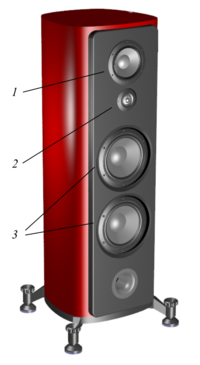
Photo from wikipedia
The ongoing trend towards synchrotron light storage rings with ultralow emittance lattices leads to greater challenges to achieve beam stability, sufficient Touschek lifetime, low heating of machine components, and conservation… Click to show full abstract
The ongoing trend towards synchrotron light storage rings with ultralow emittance lattices leads to greater challenges to achieve beam stability, sufficient Touschek lifetime, low heating of machine components, and conservation of the emittance at high bunch charge. One solution to meet these challenges is to lengthen the electron bunches with harmonic cavities. Many upgrade proposals therefore include harmonic cavities to enhance the machine performance. This is also the case for the MAX IV 3 GeV storage ring, which employs passive third harmonic cavities to achieve up to five times bunch lengthening. Unfortunately, the performance of the harmonic cavities is reduced if a gap in the fill pattern is required. In this paper, the effect on synchronous phase and bunch length due to a gap in the fill pattern for rings with passive harmonic cavities is calculated in a self-consistent way including the bunch form factor. The aim is to achieve faster simulation of various schemes for compensating a gap compared to multiparticle tracking. A new semianalytical method based on an iterative matrix formulation is presented, as well as a single-particle tracking code including the bunch form factor. The results from these methods are compared to both results from a multiparticle tracking code and measurements at the MAX IV 3 GeV storage ring. The importance of including the bunch form factor in simulations is evaluated and discussed.
Journal Title: Physical Review Accelerators and Beams
Year Published: 2018
Link to full text (if available)
Share on Social Media: Sign Up to like & get
recommendations!